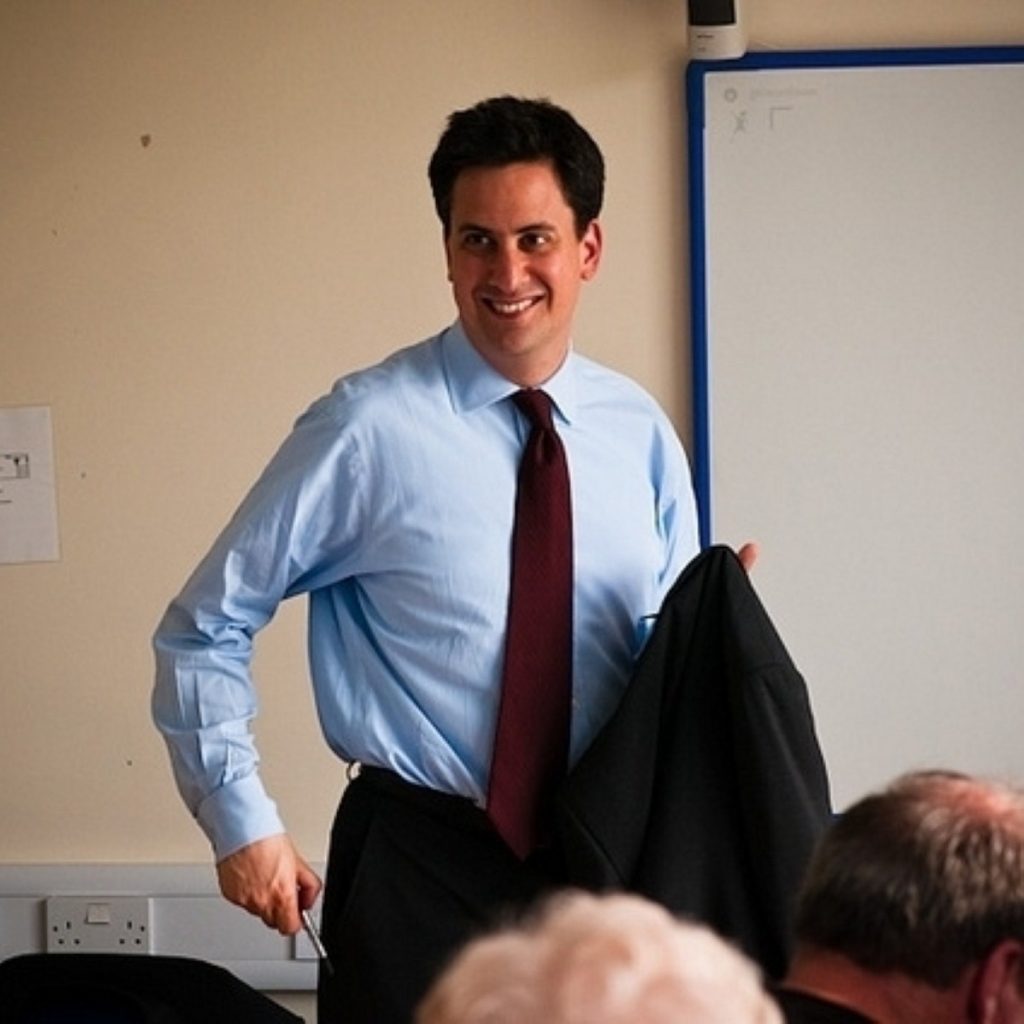Five reasons for Ed Miliband to be cheerful
Ed Miliband enters his conference week in apparently terrible shape. Labour's poll lead has all but evaporated and his personal ratings have dipped from being merely dreadful to being utterly dire.
And while he is desperate to talk about Labour's bright new future, the media just wants to talk about his party's "poisonous" past instead. Yet despite it all, there are still plenty of reasons for Miliband to be cheerful. Here's five.
1. Nobody cares about Damian McBride.
The new book by the former aide to Gordon Brown may have "electrified" Westminster but it has barely registered elsewhere. Stories about which spin doctor once said what to whom five years ago may be fascinating to people who both know and care about these things, but they're utterly dull to everybody else. Perhaps there are some really damning details yet to emerge that will seriously damage Miliband, but unless they do, this story will go nowhere.


2. They do care about childcare and housing.
The Tories have spent the past couple of years attacking Miliband for his lack of policies. Now, we're finally beginning to see some. Ed Balls' announcement on free childcare for working parents is likely to be popular with those struggling to pay the exorbitant costs of childcare. Likewise, the mooted announcement of a new housebuilding programme, and the pledge to repeal the 'bedroom tax' can be easily sold to voters.
The Tories will now spend the next year-and-a-half insisting these are unaffordable and would leave Britain bankrupt. This may or may not work, but at least Labour are setting the agenda for once. This is a step in the right direction.
3. The challenge facing David Cameron is immense.
If Ed Miliband has a mountain to climb to win the next election then David Cameron has an entire Alpine range. The Conservative party has not won an outright majority for over 20 years and they're currently even further from that aim than they were three years ago.
Since 2010 a large chunk of their support has gone to Ukip while a similarly large chunk of the Liberal Democrats' support has gone to Labour. This basic fact has barely changed over the past three years despite a slight recovery of the Tory vote in recent months.
For the Tories to win the next election outright, they need to claw back voters from Ukip, hope Labour loses their votes back to the Lib Dems, and then somehow win over a whole bunch of other voters they failed to persuade in 2010. This could all happen of course, but it's difficult right now to see how.
4. Personal ratings are not good predictors of elections.
The Tories' campaign manager Lytnon Crosby is likely to focus his campaign on attacking the perceived weakness of Ed Miliband. Veterans of his time working for London mayor Boris Johnson will know they should expect a sustained and personal series of attacks against the Labour leader. Under fire, Miliband will struggle to get any of his own messages across.
But while this may be effective as far as it goes, it fails to take into account the fact that the public already has a very low opinion of the Labour leader. Miliband's personal ratings are about as bad as it gets and the Tories remain behind anyway. Miliband's poor ratings appear to be already factored in.
Besides, personal ratings are not very good predictors of elections. Margaret Thatcher won in 1979 despite heavily trailing Callaghan as "best PM" in the polls. Tony Blair won in 1997, despite the fact that far more people trusted Major to run the economy. In Australia too, Tony Abbott has just won the election despite being seen as a worse potential prime minister than his Labor opponent.
This isn't to say that personal ratings don't matter. It's just that they're not always the decisive factor.
5. Commentators get it wrong.
Most commentators predicted that Miliband would not become the next Labour leader when Gordon Brown stood down in 2010. In fact even when the votes were coming in, the BBC's political editor Nick Robinson famously declared it had been won by his brother instead.
Many of those commentators are just as confidently predicting that Labour will lose in 2015. They may be right of course, but according to the polls and the bookies, Ed Miliband is still the favourite to become Britain's next prime minister. Not that he will have got that impression from any of the coverage he has received in recent weeks.









